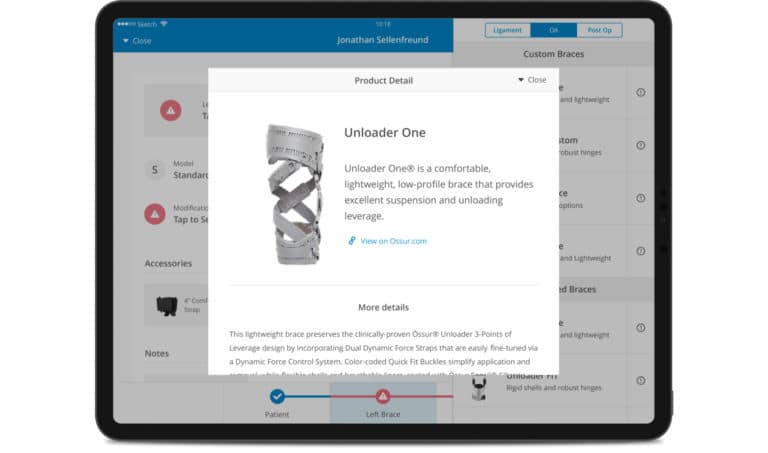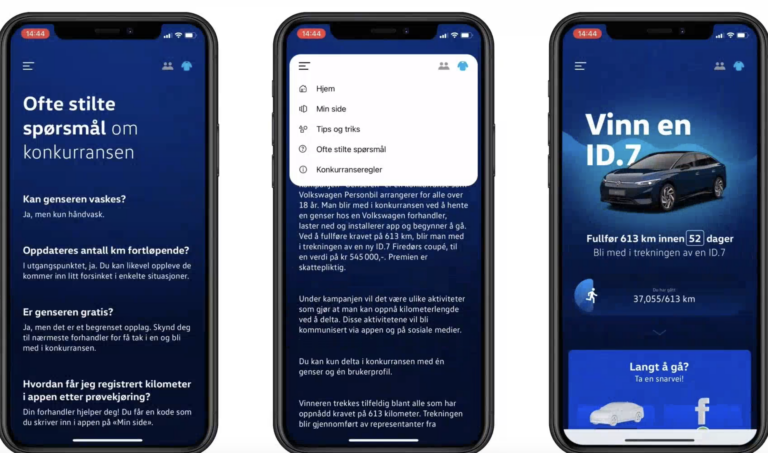Let’s meet in person!
Secure your personal meeting slot today — let's connect and discuss opportunities!
29-31 July. Dublin, IE
01-02 August. london, uk
Petro Diakiv,
Delivery Manager
at RELEVANT SOFTWARE
Why Conversational AI in Banking Is What Modern Customers Demand
The banking industry has long coped with customer pain points—endless wait times, complex processes, and a disconnect between institutions and their clients. Thankfully, technology helped solve those persistent problems. Online banking has made services more accessible and convenient for clients, AI automated tasks and personalized experiences, and now conversational AI in banking promises to take customer service to a whole new level.
Instead of impersonal menus and robotic interactions of the early chatbots, banks power their solutions with conversational AI chatbot development services to make their interactions with clients personable. The same bots used to handle hundreds of requests now can do that with a human touch.

200+ companies from 25 countries outsourced software development to Relevant
We provide companies with senior tech talent and product development expertise to build world-class software. Let's talk about how we can help you.
Contact usYou may have doubts about whether you need conversational AI for banking when you have a live chat system or a great mobile app, and we’ll tell you that it’s not an either/or situation. Artificial intelligence (AI) can redefine the way your institution connects with clients, and in this post, we’ll describe how exactly. Here, you’ll also learn about practical applications in the industry, benefits and challenges to make a well-grounded decision.
Table of Contents
What is Conversational AI?
As the term suggests, conversational AI allows computers to understand and respond to human language in a natural way. It’s far more advanced than its early versions, which only followed basic scripts. This became possible due to a powerful combination of three key components:
- Natural Language Processing (NLP) allows the system to decipher the meaning behind human language. NLP can break down sentences into words, identify grammatical structures, and even understand the sentiment (positive, negative, etc.) of your message. Figuratively speaking, it’s the brain of the conversational AI that lets it interpret your intent and respond appropriately.
- Machine Learning (ML) allows conversational AI models to learn and improve over time. When you chat with an AI, it remembers your preferences or adapts to your style of communication with each request. The more the AI interacts with humans, the more it learns to mimic human behavior. So, ML is the learning mechanism of conversational AI.
- AI algorithms power the entire system. They are complex sets of instructions that enable the system to process information from NLP and ML and ultimately generate human-like responses. Constant refinement of these algorithms will result in more sophisticated and nuanced interactions with each iteration.

Types of Conversational AI in Banking
Conversational AI comes in different forms. Below, we review the most common conversational banking products:
- Chatbots are one of the most popular solutions among banks and customers alike. Powered by NLP and ML, the banking chatbot can handle a number of tasks with a conversational touch, mimicking human interaction in a convenient and efficient way. Chatbots in banking can help customers check their balance, transfer funds, pay bills, or provide information they seek around the clock. All that clients need to do is type their questions or requests into a chat window.
- Virtual Assistants are essentially more powerful chatbots. In addition to answering customer questions, AI-powered virtual assistants can give financial advice and help manage budgets. They analyze customer spending habits and financial patterns to give personalized recommendations. The same information, as well as transaction histories and account activity data, helps personal financial assistants detect unusual account activity and alert users about it.
- Voice-activated Banking Systems offer even more convenience to customers, as they let them control finances with their voice. Speech recognition technology isn’t new. For example, Alexa will be celebrating its 10th anniversary on the market this year. So, modern customers have long ago become used to voice-based assistants. Such AI-driven solutions in banking allow customers to do all the things chatbots can do but easier and hands-free.
Applications of Conversational AI in Banking
Front-office office operations with customer inquiries and transaction assistance are not the only processes financial companies and banks can improve with conversational AI (artificial intelligence). It can similarly well automate back-office tasks such as data processing and compliance monitoring and free up human bankers to help customers with more complex financial decisions like mortgages or investments. That said, conversational AI in banking is a highly lucrative technology that helps organizations drive profits. Here are a few examples of this technology in action.
Customer Service and Support
In fact, AI chatbots used for customer service are as widespread as they have become a standard expectation for many customers. Here’s why
- 24/7 customer support
With a conversational banking platform, your financial services are always open, no matter the time of day or night. Modern customers demand this, and banks should meet it to stay competitive. They may have questions about their account details or look for information on certain financial products, and your ability to help them with their queries at any time will define the customer experience and, ultimately, their loyalty to your bank.

- Common queries administration
How often does your customer service team handle routine questions like “What’s my account balance?”, “How do I reset my online banking password?” or “What are your branch hours?” that clog up phone lines daily? Not once, surely, and not even 3-4 times a day. Conversational AI can easily do these tasks without human agent intervention. It saves time for customers and takes the load from your staff.
- Assisting with transactions
Budget management shouldn’t be a hassle in a world where people can do many things with just a few clicks on their phones. Conversational AI can do just that for transactions. Need to pay a bill or transfer money to a friend? Simply instruct your virtual assistant, and it will guide you through the process or make a money transfer for you. In addition to saving time in the process, there’s much less risk of errors that can occur with traditional methods.
Fraud Detection and Prevention
Banks and financial institutions have always been lucrative targets for fraudsters who haven’t stopped inventing new schemes and ways to steal data, money, or credentials. Artificial intelligence (AI) helps strengthen your security measures and online monitoring of suspicious activity. Financial companies that create AI systems benefit from:
- Real-time monitoring of transactions
Conversational AI analyzes every transaction as it happens and compares it against pre-defined red flags and historical spending patterns. Suspicious activity, like a large overseas purchase or a sudden spike in ATM withdrawals, will trigger immediate action.
- Alerting customers about suspicious activities
AI-driven banking chatbot will send a customer real-time alert on their phone as soon as it detects a suspicious charge and offers options to investigate further. This way, AI systems let customers take control and potentially prevent fraudulent activity before any damage is done.
Personal Financial Management
Managing money for some people who are not well-versed in finances can feel daunting. But what if there is a wise advisor who can help them budget and navigate investment options, and who is readily available 24/7? Conversational banking is that same solution that will help your clients manage their finances more wisely and easily. Virtual assistants support the clients in the following ways:
- Budgeting assistance
Smart virtual assistants analyze customer spending habits and income to create personalized budgets that fit their lifestyles. They help users set realistic financial goals and stick to them by following tips and recommendations from the assistant on how to save and spend wisely. It seems like achieving financial objectives has never been easier.
- Spending analysis
Ever wonder where your money goes each month? AI (artificial intelligence) used to power virtual assistants can shed light on client spending patterns. It checks transactions and categorizes expenses to identify areas where clients can potentially save. This newfound clarity empowers people to make informed financial decisions and leaves no more mysteries lurking in bank statements.
- Investment advice
Investing has long been reserved for the wealthy. But AI breaks down these barriers. A personal financial advisor explains complex instruments in clear, simple language or recommends investment strategies based on your risk tolerance and long-term goals. Suddenly, building wealth for your future feels less like a gamble and more like an achievable step toward your dreams.
Loan and Mortgage Services
The process of applying for a loan or mortgage is usually considered notoriously complex and lengthy. The AI chatbot is a sure way to simplify it, making it faster and easier. Through AI in software development, banks can incredibly improve their clients’ loan and mortgage experience. So, what can conversational AI for banking do for your clients?

- Process application
The standard mortgage application is filled with endless forms and loads of financial information. In addition to continuous guidance through the process, AI simplifies loan applications for clients by automatically verifying and pre-filling basic information, which reduces manual entry errors and saves time. Ultimately, it frees customers from the tedious back-and-forth and keeps them moving swiftly toward their loan or mortgage goals.
- Provide status updates
Waiting for loan or mortgage approval is always stressful. Instead of endless phone calls, conversational AI (artificial intelligence) helps clients track every step of the way. They can receive instant updates on their application status directly through their smartphone or their preferred messaging platform. It lets applicants plan ahead and make informed decisions with confidence.
- Assist with document submission
Gathering and submitting documents is often a tedious part of the loan or mortgage process. Conversational AI in the form of chatbots or virtual assistants streamlines this, too. They can remind you of missing documents and prompt applicants to upload them directly through the chat interface. It checks for all documents and whether everything is submitted correctly. Such support during document submissions reduces the risk of delays caused by missing paperwork and smoothes the path.
Account Management
Keeping tabs on finances can feel like a chore for some people. You need to handle checkbooks, remember passwords, and track transactions, which can quickly become overwhelming. A smart conversational banking platform offers customers support with tasks related to account management.

- Balance inquiries
Gone are the days when checking your account balance meant waiting on hold for a customer service representative or standing in line at the bank. With conversational AI, clients can instantly find out their account balance by simply asking a virtual assistant or a chatbot. Customers get the information they need in seconds, without any hassle.
- Transaction history
Ever lose track of where your money goes? Conversational artificial intelligence (AI) can shed light on your spending habits. Clients don’t need to search through lengthy statements, they can just ask AI assistant specific questions like, “How much did I spend on groceries last month?” or “What were my most recent transactions?” to get a detailed summary. That’s a truly convenient way to see a purchase history categorized and readily available.
- Fund transfers
Transferring funds between accounts or to other people can be a cumbersome process that traditionally involves multiple steps and verifications. Never was account management easier than it is now with conversational AI technology. Users can just tell a virtual assistant where they want to send the money (pay a bill or move funds to savings), and it takes care of the rest.
Benefits of Conversational AI in Banking
Conversational AI is an affordable answer to a lot of banking procedures. Yet, cost-efficiency is only one of the multiple benefits financial organizations can enjoy if they decide to make a chatbot. Since not all banks have software development in-house to build a conversational chatbot, many opt for AI outsourcing services to bridge the technical gap and realize the benefits of conversational AI.

Personalized interactions
Through the analysis of a customer’s banking history and preferences, AI assistant offers personalized recommendations and customer service. For example, it can suggest a savings plan based on the client’s spending habits or recommend investment options aligned with the client’s financial goals.
Quick resolution of issues
No one likes waiting, especially when it comes to resolving banking issues. Conversational AI addresses customer queries as soon as they arise, whether it’s a simple balance check, transaction dispute, or a loan application. With AI, customer problems are solved quickly and at a large scale without the long wait times associated with traditional customer service.
Accessibility and convenience
Conversational AI provides 24/7 access to banking services. Whether it’s a late-night question about a transaction or a weekend inquiry about loan options, customers can get the information they need anytime. This is a critical ability of banks nowadays as people expect immediate answers and are capable of managing their finances whenever it best suits them.
Reduced operational costs
Chatbots can handle a high volume of inquiries simultaneously and automate a number of routine tasks that your staff spends a lot of time on. Through the automation of these time-intensive tasks, AI helps banks cut down operational costs and the need for large teams. Apart from saving money, banks can reallocate resources to more critical areas to enhance overall efficiency.
Lower need for human agents
While human interaction will always be important in banking, conversational AI reduces the burden on customer service representatives by handling the bulk of routine inquiries. This allows them to dedicate more time to resolving complex issues and providing higher-level support. Thus, your customers get the best of both worlds: quick automated responses and expert human advice when needed.
Multi-factor authentication
Security should be integral in banking, and conversational AI enhances this through multi-factor authentication. AI systems can verify a client’s identity using multiple data points (passwords, biometrics, behavioral patterns, etc.), which makes it much harder for fraudsters to gain access to accounts.
Behavioral biometrics
Conversational AI takes security a step further with behavioral biometrics. By analyzing how you interact with your devices—your typing speed, swiping patterns, and even the way you hold your phone—AI can detect unusual behavior and flag potential security threats.
Automation of routine tasks
Repetitive tasks like checking account balances, funds transfers, or password resets can be automated by conversational AI. This frees up both customer and bank staff time and results in a smoother and more efficient banking experience.
Streamlined workflows
Conversational AI streamlines bank workflows by automating mundane tasks and providing real-time assistance, which eliminates bottlenecks and enhances operational efficiency. For example, AI can handle customer inquiries, process transactions, manage documentation, and a handful of other tasks.
Challenges and Considerations
AI implementation isn’t a walk in the park. There are hurdles to hop over, and that should be carefully considered before you begin to deploy technology. As Deloitte’s 2024 outlook on banking and capital markets states, banks will likely face difficulties in customizing products and services due to outdated legacy systems. Curating personalized experiences is another big challenge, according to Deloitte, even though banks possess an abundance of customer information.
So, it’s crucial to validate AI applications first and thoroughly plan the implementation. Since the technical side of AI can get quite complex, banks often hire AI engineers to integrate technology flawlessly into bank operations. Here are some of the most critical barriers financial organizations may encounter:
Data protection
Conversational AI in banking needs a lot of customer data to function, which raises concerns about privacy and security. Banks must have strong data protection measures by default. And when it comes to AI implementation, they need to review and strengthen their data governance policies and security protocols to ensure customer information is collected, stored, and used responsibly.
Compliance with regulations
Banks operate in a heavily regulated industry, and compliance with these regulations is vital. Conversational AI systems must adhere to data privacy laws and banking regulations, such as GDPR, CCPA, and others your organization is subject to.
Integration with legacy systems
Many banks operate with complex legacy systems that may not be readily compatible with AI technologies. Executives must assess their current infrastructure and plan for seamless integration to avoid disruptions. Investment in API development and cloud infrastructure may be necessary to integrate the new technology with current systems in use and ensure smooth data flow.
Balancing automation with personal interaction
While automation is a key benefit, financial companies shouldn’t overlook the importance of human interaction. Conversational AI should complement, not replace, the value of experienced customer service representatives who can handle complex issues and provide personalized guidance.
Addressing complex issues that require human intervention
Conversational AI is capable of handling routine tasks and some nuanced queries, but more complex issues will require attention from your customer service representatives. That’s why it’s wise to have a system in place to transition customers from AI to human agents when needed seamlessly.
Keeping AI models updated
AI models need to be regularly updated with new data and algorithm improvements to remain effective and accurate over time. An updated AI model means that it will be able to answer new types of queries, recognize new fraud patterns, and maintain a high level of performance. You can do it in-house with a dedicated team of data scientists and AI engineers or partner with an AI service provider.
Training AI with new data
The effectiveness of conversational AI in banking depends on the quality and quantity of data it’s trained on. You should establish a process for continually feeding the AI with new data to keep it up-to-date with financial terminology, industry jargon, and changing customer behavior.
Integration with Other Technologies
Conversational AI’s true power lies in its ability to integrate with other technologies. For example, combining it with blockchain could create a secure and transparent way for customers to verify transactions and manage digital assets directly through chatbots.
Another exciting integration is with the Internet of Things (IoT). This blend, when applied in the financial field, can deliver real-time data analytics from connected devices. Such detailed information will help assess risk more accurately and hyper-personalize your customer experiences.
Conversational AI in Banking: Summary
Conversational AI in banking has undeniably simplified clients’ lives, as it lets them manage finances with just a click on their smartphones. Sure, banks love the cost-cutting benefit of automation, but the real win is the customer trust built through skyrocketed convenience.
If you want to win the trust and loyalty of your customers in today’s on-demand world, there’s no better strategy than partnering with a reliable tech provider for AI development services. At Relevant, we have experience collaborating with financial organizations and helping them solve real problems they have through digital solutions. Our expertise in fintech software development combined with first-class AI engineering lets us build tailored, efficient, and innovative AI solutions. Tell us what your pains are, and we’ll figure out how to address them and help you achieve the desirable outcomes.
Our core services:
Do you want a price estimate for your project?
Do you know that we helped 200+ companies build web/mobile apps and scale dev teams?
Let's talk about your engineering needs.
Write to us











